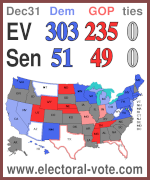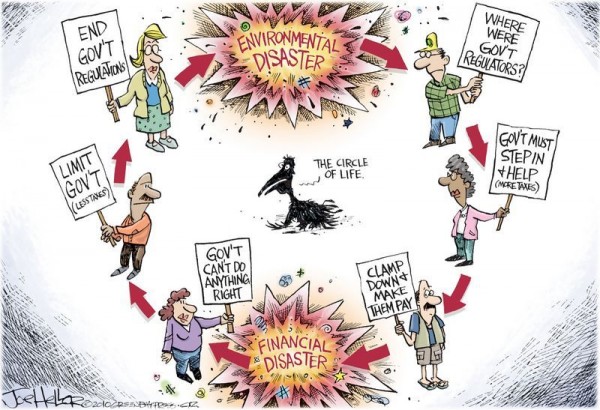Those who forget the past are doomed to repeat it.
-
‹ Home
Info
-
Subscribe
-
Users
Links
- All Hat No Cattle
- Andy Borowitz
- Axios
- Barry Deutsch
- Bearman Cartoons
- Beau of the Fifth Column
- Capitol Steps
- Cook Political Report
- Crooks and Liars
- Daily Kos Comics
- Daily Show
- David Horsey
- Derf City
- Digby
- Eclectablog
- Electoral Vote
- Fair and Unbalanced
- Fark Politics
- Five Thirty Eight Politics
- Funny or Die
- Funny Times
- Go Comics
- Hackwhackers
- Heather Cox Richardson
- HuffPost Comedy
- John Fugelsang
- Kung Foo Monkey
- Last Week Tonight
- Margaret and Helen
- Mark Fiore
- Matt Davies
- Matt Wuerker
- McClatchy Cartoons
- News of the Weird
- O'Carl's Law
- Politicususa
- PolitiFact
- Propaganda Professor
- Raging Pencils
- Randy Rainbow
- RCP Cartoons
- Saturday Night Live
- Slowpoke
- Stonekettle Station
- Ted Rall
- The Nib
- The Onion
- Tom the Dancing Bug
- Tom Toles
- USN Political Cartoons
- What Now Toons
-
Tags
Abortion Bush Campaign Finance Cheney Climate Clinton Congress Conservatives Corporations Corruption Deficits Democrats Drugs Economy Education Election Elections Energy Environment Fox News Gays Guns Health Immigration Lies McCain Media Middle East Obama Palin Protests Racism Religion Republicans Romney Spying Supreme Court Taxes Tea Party Terrorism Terrorists Torture Trump Unemployment War
-
Archives

You are Visitor #


16 Comments
I would say that financial and environmental disasters occupy the same spot, and the turning point towards deregulation is complacency.
I agree with Mike. Deregulation caused both disasters.
This WOULD be funny, if you could name a single financial disaster in recent history that was caused by increased regulations, as opposed to deregulation…
“The Great Deluge” Douglas Brinkley. And other books about Katrina. Over 60 years, the area was given millions of dollars to build levees that would stand. The money was syphoned off into pockets (remember Huey Long?) Army Corps of Engineers did a slip shod job of building the levees, built a shipping channel that isn’t used. (The current Core of Engineers feel they have build the levees properly. It was a disaster waiting to happen due to corruption. The oil Barons destroyed the marshes in the 1920s, 1930s.
I don’t think this is a cause and effect circle; I’m pretty sure it’s meant to be an illustration of revolving predominant attitudes in the midst of different kinds of disasters.
@TOBY
How about the stagflation of the 70’s? That was a result of bloated government and ridiculous taxes (the top bracket had to give away 70% of their money!). It’s not necessarily a financial meltdown in terms of a great depression/banking crisis, but it was a was decimated due to inflation, high government spending, and absurd taxes.
I think the idea is not to swing between the extremes. A government that isn’t bloated (but still big enough that you can’t “drown it in a bathtub”) seems ideal to me. A government that’s medium sized, politically balanced, with low(ish) taxes, and with effective regulation (which isn’t damaging) is the (most) perfect solution.
-Jacob
Isn’t that exactly what we have?
Well, apart from effective regulation, anyway. But then, effective regulation depends on predominantly obedient and disciplined attitudes all the way down the chain, which we all know Americans are bred not to possess. The Japanese know how to effectively regulate, but they have strong individual constitutions. Ours are less strong, and more stubborn.
The main problem is how easy it is for corporations to bribe the regulators. They need to implement actions that would take away everything the person owned if they found them accepting bribes. Unfortunately the people with the power to make that happen have all taken bribes as well, and they want to continue that trend.
The current government has lasted too long and needs to be remade. Or perhaps we could just stop electing politicians, and start electing decent human beings.
Stupid.
The most significant and recent financial disasters did not result from overegulation, but from the lack of it.
See: 2008, 1929
“Isn’t that exactly what we have?”
A government that is buying companies, bailing out banks with billions of dollars, spending trillions on a non-sanctioned war and public health care is definitely bloated. The spending needs to stop, but it never happens. The government is always asking for more and never cutting.
Don’t neglect the fact that the liability cap of $75 million for BP is a regulation. We need deregulation. It was that regulation that encouraged BP to take more risks than they would have. In a free unregulated market, they may not have even decided the risks of losing so much money warranted drilling the well at all. Also, insurance companies might not have been willing to insure them if there was no regulation. Or if they did agree to insure them, they would have required very stringent safety procedures to be followed. “Regulation” is much more than safety laws. It’s mostly a maze of laws that are designed to shield businesses from market forces.
Would be funny if it actually worked like this. There were regulations making it illegal, which BP and the government ignored, because BP has money, the government NEVER gets limited, and that wouldn’t cause a financial crisis. It’s idiots like you why society never advances. Also, Jim, you’re dumb.
I really want to encourage civil debate in here, so please, no name calling.
this is a situation every where and at every stage. this is because we are not ourselves responsible and do not have the capacity carry ourselves responsibly in the civil society.
It’s not that simple…
2 Trackbacks/Pingbacks
[…] More on the “circle of life“: […]
[…] via Political Irony › The Circle of Life (and Death). […]